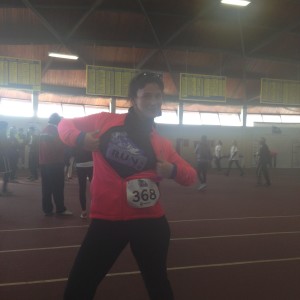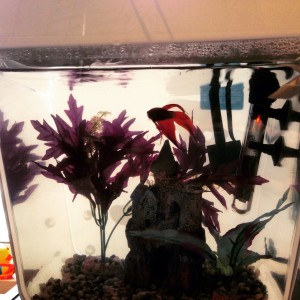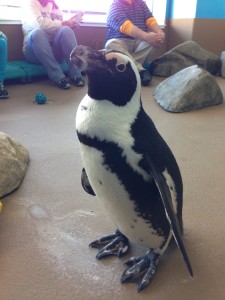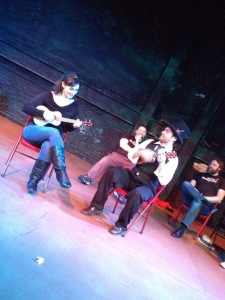One thing I have emphasized as we go along (and that I feel the need to reemphasize) is the importance of cross training.
Getting a PhD is insanely taxing mentally and emotionally. You spend all day every day working out your brain (so… basically you can ignore those luminosity commercials that pop up in Hulu when you’re trying to kick back a bit). Moreover, your work becomes something that you’re invested in; there are huge emotional stakes in turning in a paper, chapter, draft, or even research proposal. Getting a PhD is tough on the psyche. But like working any muscle, it’s important to rest and relax between sets.
This is part of why I’ve taken up so many physical hobbies over the course of getting my PhD. When I was studying for my German language proficiency, I taught myself to play the ukulele because it would relax me and help me unjam my mind from words too long to fit on one line. When I was studying for my written comprehensive exams, I taught myself to crack a six foot bullwhip and spin poi because taking ten minutes to just step outside and do something in my own body really helped me to de-stress and uncram my brain so that I might fit a bit more in with each study session.
Workouts have also been an important part of this cross training. While I’ve been a long-time gym bunny, over the last year I’ve gotten serious about one workout specifically which has really helped me in a lot of ways: running.
It sounds silly because it’s something we learn to do as children. Everybody, after all, can run. But let me tell you, before I started my C25K program last year, I was pretty hopeless at it. I set in hoping to just complete a 5K (because who wouldn’t want to cross that completely doable task off their bucket list?). One Spartan Sprint later and I was hooked.
I’ve had to be careful; running is tough on your body and if you have any particular injuries or quirks it will exacerbate them (I, for example, have knee issues that I have to keep a close eye on). Since I started running outside, I also have learned to wear highlighter-colored jackets to avoid being hit by less-than-careful Massachusetts drivers.
But I’ve found that it’s extremely satisfying to train up distances. Nothing can turn around a bad day with my books like setting a goal and doing it; and my running goals are something I keep very achievable just for this reason. I upped the stakes this winter by investing in some cold-weather running gear and, despite being a general wimp about the cold, I’ve never enjoyed working out more. Cold-weather workouts mean that once you get warmed up, you have a pleasant (natural) coolant to keep you from overheating (… unless you accidentally put on too many layers which is a learning curve all to itself). Let me tell you, I was the most astonished when I woke up the morning of my most recent race to nineteen degree weather and thought “It’s not that bad out!”

feeling pretty beast at the finish line!
This year, I’ve decided that to celebrate my achievements by running twelve races; one race a month in 2015. The races can be of any length, they just need to be chip-timed events (and it is, of course, preferable that there’s some kind of cool race-sponsored after-party to attend). On this Saturday past, I ran my first race of 2015: the Resolution Run to Kick Cancer 5k. I set a personal best for chip time, and even overheated in the nineteen-degree weather. Not a bad way to start my year of races!
In a world of hazy deadlines and work that has seemingly no end and no beginning, running these races gives me something to work towards, something to look forward to, and something to feel accomplished about at the finish line. If you’re in your writing phase and haven’t found that for yourself yet, I highly recommend that you do. It doesn’t have to be running, but it should be something that you can accomplish and feel proud about (and, ideally, share with the wide world of the internet; because what’s achievement without facebook fame?).
Next up for me will be the Super Sunday 5M (followed by the Black Cat 10M in March). I am really excited about it!







